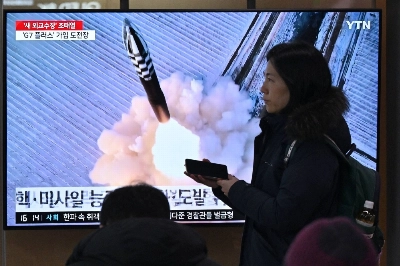North Korean leader Kim Jong Un has called for a constitutional amendment to change the status of South Korea to a separate state and warned that while his country doesn't seek war, it didn't intend to avoid it, the official Korean Central News Agency (KCNA) reported Tuesday.
Kim said Monday that it was his final conclusion that unification with the South is no longer possible in a speech to the Supreme People's Assembly, North Korea's rubber-stamp parliament, while accusing Seoul of seeking regime collapse and unification by absorption.
"We don't want war but we have no intention of avoiding it," Kim was quoted as saying by KCNA.


















With your current subscription plan you can comment on stories. However, before writing your first comment, please create a display name in the Profile section of your subscriber account page.